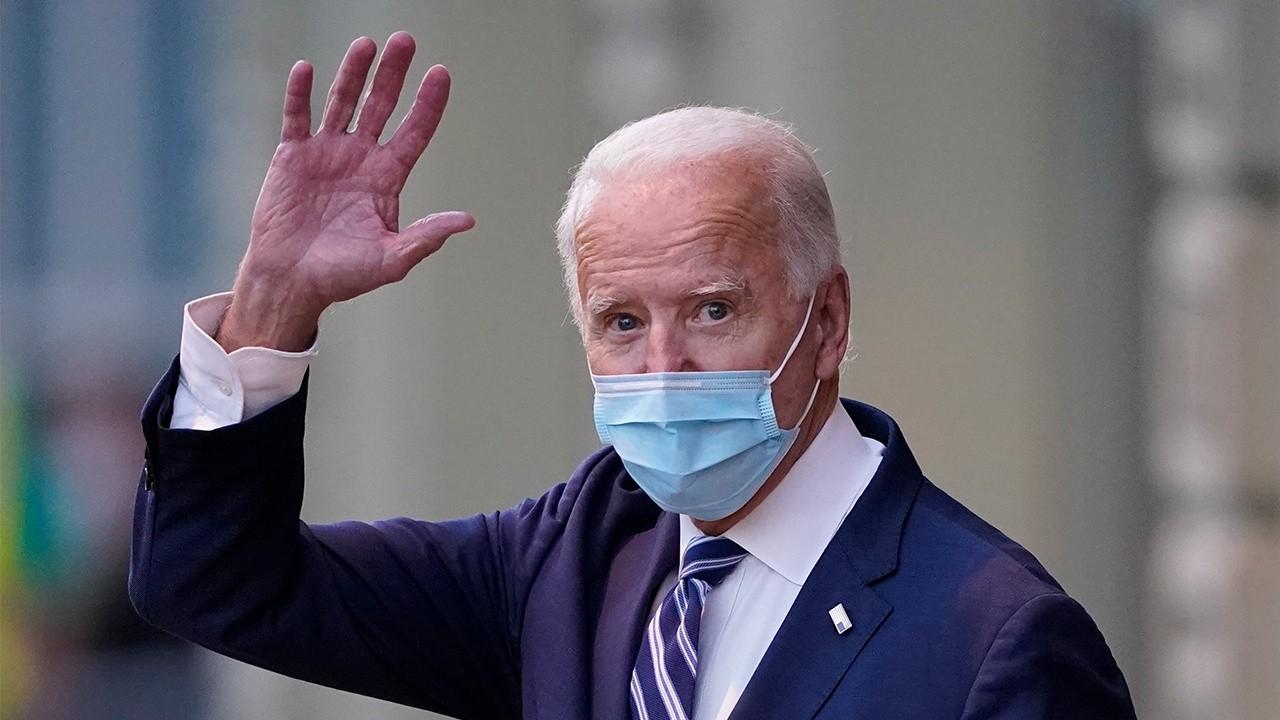Biden indicates he supports raising tax rates to Bush-era highs
Under George W. Bush, highest marginal income rate was 39.6% for Americans earning at least $374K
President-elect Joe Biden suggested this week that he supports returning individual and corporate tax rates to George W. Bush-era highs even though his economic agenda likely hinges on the outcome of two Georgia runoff elections in January.
During an interview with The New York Times, Biden said one of his top priorities even before he enters the White House on Jan. 20 is getting a generous coronavirus relief package through Congress. Doing so will help generate economic growth without long-term fiscal harm in the future, he said, so long as "everybody pays their fair share for God's sake."
“And by that fair share, I mean there’s no reason why the top tax rate shouldn’t be 39.6 percent, which it was in the beginning of the Bush administration," Biden said. "There’s no reason why 91 Fortune 500 companies should be paying zero in taxes.”
HOW A BIDEN PRESIDENCY COULD CHANGE YOUR TAX BILL
The nation's highest marginal income rate was 39.6% for Americans earning at least $374,000 before Bush made a series of tax cuts in 2001 and 2003 -- known as the Bush Tax Cuts -- slashing the top rate to 35% for high earners. Those cuts remained in place until 2013 when the changes to the tax code sunsetted.
At the time, as the economy recovered from the 2008 financial crisis, Congress and President Barack Obama chose to keep the individual tax rate at 39.6%.
The top income tax rate remained at 39.6% until 2017, when President Trump signed into law the 2017 Tax Cuts and Jobs Act, which slashed the corporate tax rate to 21% from 35% and the individual tax rate to 37%.
Biden has repeatedly pledged to roll back that law and restore the corporate tax rate to 28% and raise the top income rate to 39.6% -- with a caveat that taxes won't rise on any American earning less than $400,000.
“I will raise taxes for anybody making over $400,000,” Biden promised during his campaign. “Let me tell you why I'm going to do it. It’s about time they start paying a fair share of the economic responsibility we have. The very wealthy should pay a fair share – corporations should pay a fair share.”
However, some of the former vice president's proposals could indirectly hit middle-class Americans, according to Taylor LaJoie, a policy analyst at the Tax Foundation.
"When Biden says he will raise taxes on only those earning over $400,000, he is saying his tax law will target only those high-income taxpayers," LaJoie wrote. "Economists, however, trace the economic impact of these taxes past the person writing the check."
For instance, hiking taxes on corporations tends to adversely hurt workers in the form of lower wages, according to the Tax Foundation, a center-right think tank based in Washington, D.C.
SOME RETIREES COULD SEE 5% SOCIAL SECURITY RAISE WITH BIDEN AS PRESIDENT
One study published by the American Enterprise Institute, a conservative think tank, found that a 1% increase in the corporate tax rate is correlated with a 0.5% decline in real wages. And in 2007, the nonpartisan Congressional Budget Office determined that workers pay more than 70% of the cost of corporate taxes.
Still, the Constitution ultimately gives Congress the power to set tax policy, so Biden's economic agenda depends on whether Democratic candidates Raphael Warnock and Jon Ossoff win their respective races against Georgia Sens. Kelly Loeffler and David Perdue on Jan. 5.
If they win, Democrats would secure a 50-50 split, with Vice President-elect Kamala Harris able to cast a tie-breaking vote.
Almost 80% of the tax increases backed by Biden would land on the top 1% of earners in the U.S., according to one projection from the Penn Wharton Budget Model, a nonpartisan group at the University of Pennsylvania's Wharton School.
GET FOX BUSINESS ON THE GO BY CLICKING HERE




















